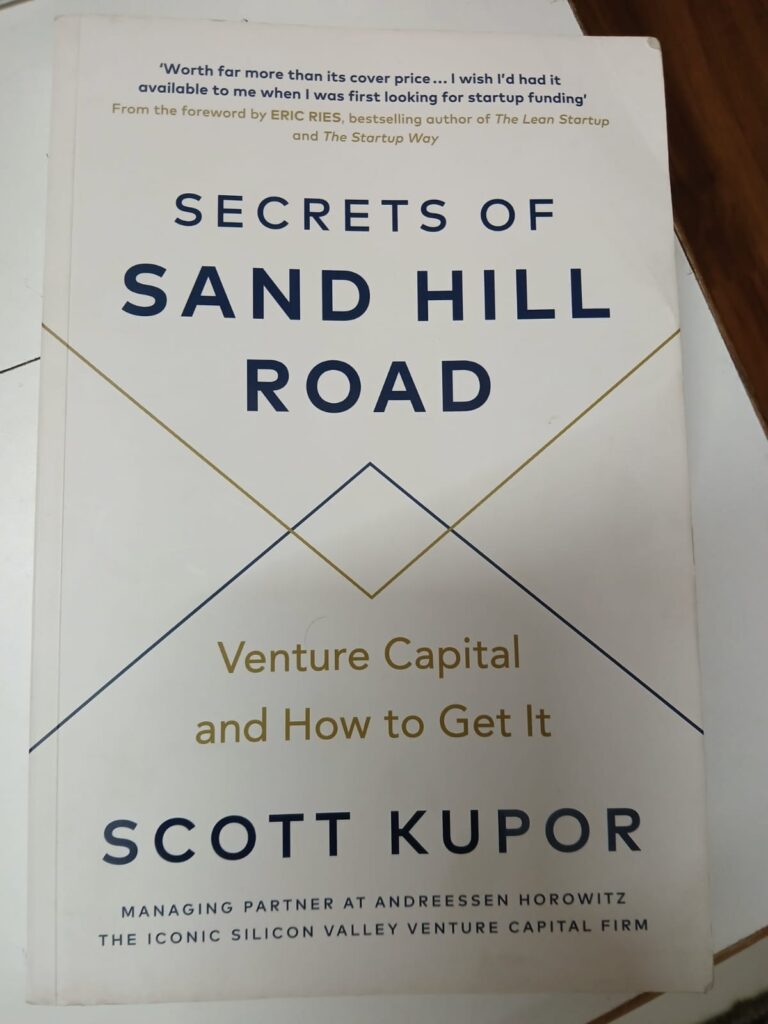
If you’re unfamiliar with venture capital and startup fundraising, Scott Kupor’s book “Secrets of Sand Hill Road” serves as a guide through a complex landscape. Experienced founders who have been through several funding rounds might recognize some ideas, but for newcomers, it offers a wealth of practical and actionable advice. In “Secrets of Sand Hill Road,” Kupor reveals the inner workings of venture capital, sharing insights that even veteran entrepreneurs seldom discuss. Here’s a straightforward summary of why this book is invaluable for first-time founders and startup enthusiasts.
The book delves deeply into the often-murky world of venture financing. Kupor, managing partner at Andreessen Horowitz (a16z), exposes how venture capitalists think, operate, and make decisions. He clarifies topics that are rarely explained so clearly, providing founders with a guide to better understand their potential investors.
From my reading, here are some points I believe will be especially useful and interesting to you:
- Understanding the VC Mindset and Fund Economics
Kupor carefully explains the economics behind a venture capital fund. This covers not only how VCs earn money but also why they make certain decisions. He breaks down concepts like fund size, management fees, carried interest, and the power law distribution of returns. Knowing that VCs rely on big successes to make their funds profitable helps you shape your pitch and grasp their tolerance for risk. This perspective shift can help you align your approach with their objectives. - The Term Sheet Demystified
For many founders, the term sheet can seem like a complicated legal document full of jargon. Kupor spends considerable time explaining the parts of a term sheet, covering liquidation preferences, anti-dilution clauses, vesting schedules, and board representation. He clarifies what each term means for founders, empowering you to negotiate more confidently and avoid common mistakes. This section alone is worth reading, as it gives you the tools to protect your equity and control. - The Due Diligence Process Explained
What happens after a VC shows interest? The book thoroughly describes the due diligence process. It’s not just about your financials; VCs will examine your team, market, technology, and customer traction. Kupor provides insights into what VCs seek and how to prepare for this thorough review. Knowing what to expect can reduce stress and improve your chances of securing funding. - Beyond the Money: The Value VCs Bring (and Don’t)
Kupor offers a realistic view of the value VCs add beyond capital. He discusses how venture firms can help with recruiting, strategic advice, and networking. However, he also stresses that VCs are not operational partners and that founders remain responsible for running the company. This balanced perspective helps founders set realistic expectations and use their investors effectively without relinquishing control.
Additional reasons that make the book special include its focus on:
- Fundraising Psychology
Beyond the numbers, Kupor highlights the human element: what earns investors’ trust and how to build relationships that last beyond a single investment. - Board Dynamics
You’ll learn how board meetings actually function, why members vote as they do, and how to prepare for both supportive and challenging discussions. - The Long Game
The book explores why VCs think in terms of 10-year horizons, helping founders set realistic goals for growth and exit strategies.
Written clearly and straightforwardly, the book makes complex topics accessible. It serves as a comprehensive playbook that can help you avoid costly errors and greatly improve your chances of obtaining the right funding for your startup.
“Secrets of Sand Hill Road” is not just about raising money; it’s about understanding the entire venture capital ecosystem from the investor’s viewpoint. It’s an essential resource that equips founders with knowledge to navigate the VC world with confidence and clarity. Overall, it’s an easy and insightful read that prepares you for conversations that could shape your company’s relationship with venture capital.
Key Quotes to Share
Here are two quotes I believe you’ll appreciate after reading the book:
“Fundraising is not a one-time event—it’s the beginning of a long-term partnership.”
“Your valuation is not just a number; it’s a reflection of what you’re promising to build.”
So, which part of the VC playbook excites or intimidates you the most? Leave a comment—let’s explore the investor’s mindset together.
Leave a Reply
You must be logged in to post a comment.